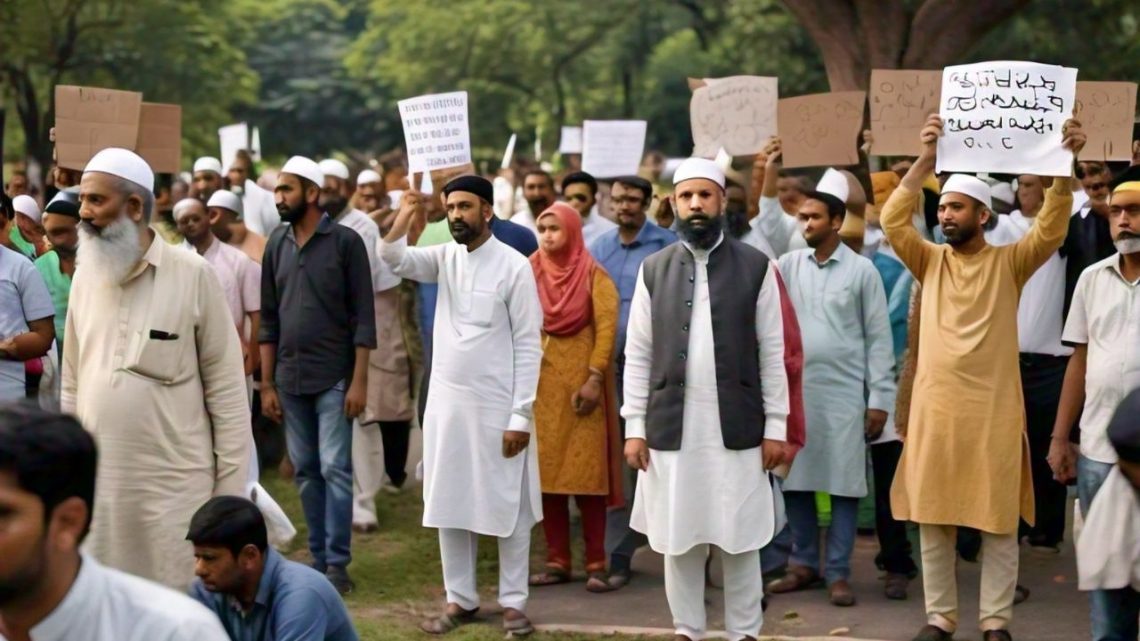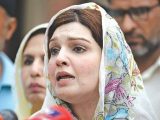
The Rising Tide of Islamophobia and Anti-Muslim Violence in India
October 31, 2024In recent years, the landscape of communal relations in India has drastically shifted. Under the BJP’s third term in power, violence and persecution against Muslims have surged alarmingly. This systematic discrimination is evident in various forms, including housing segregation, communal violence, and blatant state favoritism towards Hindus.
The ongoing oppression of Muslims under Modi’s regime has manifested in violent attacks during religious practices, often occurring with impunity. Such acts not only deepen the exclusion of Muslims but also intensify their vulnerability within a society that increasingly marginalizes them.
Muslim victims have urged the Indian Supreme Court to intervene against what they call “Bulldozer Justice.” This term refers to the arbitrary demolition of Muslim-owned properties, disguised as efforts to remove illegal structures. These actions, driven by Hindutva elements, are blatant violations of rights and highlight the targeted nature of the campaign against Muslims.
The recent implementation of anti-conversion laws has further stifled personal freedoms. Muslim converts are facing severe penalties, including life imprisonment, for exercising their right to choose their religion. This crackdown reflects a broader trend of intolerance that threatens the very foundation of individual liberty.
Experts from the Justice for All (JFA) conference have raised alarms about the rising Islamophobia in India, warning that it could lead to genocide against Muslims. This grim prediction underscores the urgency of addressing these issues before they spiral out of control.
Institutionalized bigotry is repeated illustrated by protests against housing initiatives for Muslim single mothers. Such actions reflect deeply rooted discrimination, emphasizing the challenges faced by vulnerable communities under Modi’s regime.
Violent incidents, such as assaults on Muslims during Ramadan prayers at Gujarat University, expose the increasing danger that Muslims face in their daily lives. The absence of government intervention during such incidents contradicts India’s self-proclaimed secular ideals.
Housing discrimination in Gujarat perpetuates a form of modern-day apartheid, where Muslim residents are systematically excluded from Hindu-dominated areas. This deliberate segregation exacerbates social divides and fuels religious tensions.
The Indian government has also intensified its repression of dissenting voices, particularly among religious minorities and their advocates. Tactics such as surveillance, harassment, property demolitions, and detentions under the Unlawful Activities Prevention Act (UAPA) serve to stifle opposition and dissent.
In this climate of fear, public figures like BJP member Gyan Dev Ahuja have incited violence against Muslims, calling for the killing of anyone involved in cow slaughter. Such rhetoric has only escalated tensions in states like Bihar, Uttar Pradesh, and Delhi.
Muslim women, already facing numerous challenges, have been subjected to heightened harassment and discrimination at both local and state levels. This intersection of gender and religious inequality aggravates their plight.
The destruction of property in predominantly Muslim neighborhoods continues unabated, further inflaming communal tensions. Meanwhile, social media platforms have become breeding grounds for disinformation, hate speech, and incitement of violence against religious minorities, exploited by Hindu nationalist groups to stoke communal discord.
Legislative measures such as the Citizenship Amendment Act (CAA) and the National Register of Citizens (NRC) aim to marginalize Muslims, putting hundreds of thousands at risk of losing their citizenship. Civil society organizations must urgently approach the Supreme Court to halt the demolitions of Muslim-owned properties and safeguard minority rights.
The international community must not remain silent in the face of rising Islamophobia in India. Protective measures must be advocated to ensure the safety of minority communities. Additionally, international non-governmental organizations (INGOs) should lead campaigns addressing housing discrimination against Muslim single mothers and promote inclusive policies.
World governing bodies must compel the Indian government to protect minorities during religious observances, reinforcing India’s secular principles. Civil society must mobilize against the CAA and NRC, defending the citizenship rights of Muslims in India.
In this critical moment, collective action is essential to confront the escalating tide of Islamophobia and ensure justice and equality for all.

